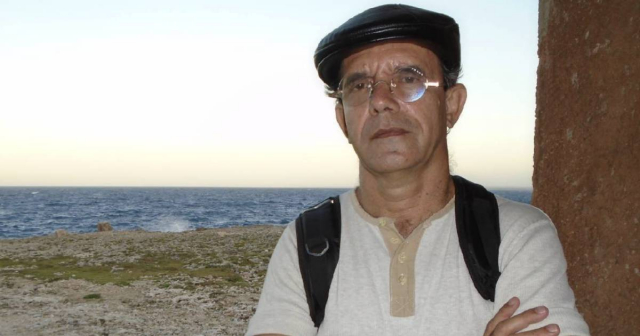Spanish senator of the PP Fernando Gutiérrez Díaz de Otazu, retired general and president of the Special Group for the Mediterranean and Middle East of the NATO Parliamentary Assembly, believes that there is no need to worry about the arrival of a Russian fleet to Havana. "It is a friendly visit, within the framework of exercises that they have been carrying out previously in the Atlantic," and in his opinion, it should not be given greater importance, despite the fact that the US Navy is monitoring the movement, given the island's geostrategic situation.
Díaz de Otazu emphasizes that "it is not unusual for Russian ships to move in international waters and approach ports they consider friendly," he said in an interview granted this Friday to CiberCuba.
The popular senator also rules out a direct relationship between Ukraine's use of Russian weapons to bomb military targets in Russia and the arrival of the Russian fleet in Havana because, in his opinion, the use not only by the United States but also by several NATO allied countries that have provided weapons to Ukraine to defend itself against Russia occurred at the end of May, just ten days ago, and there would not have been time for this flotilla of four ships in the Atlantic to have been conducting exercises, which must have been scheduled in advance.
"This is a non-military action, but a friendly one on the part of the Russian Federation towards Cuba in this case," added the former general commander of the city of Melilla, a Spanish city located in northern Africa, on the border with Morocco.
Regarding the question of whether the arrival of the flotilla in Havana is a message from Russia to NATO, Díaz de Otazu believes that indeed, "Russia is trying to send messages that its presence and its level of support and friendship with different countries around the world remains alive and operational."
However, he commented that NATO is currently concerned not with Russia's movements in the Caribbean, in Cuba, but with other movements concerning countries in the southern flank. "That is, the entire presence of Russian military in North Africa and the Sahel." In fact, the Popular Senator adds, the NATO Secretary General has requested a report that has been prepared and delivered already, in which a group of experts assesses this Russian presence.
Russia seeks to maintain a presence in all international environments to continue garnering support in the United Nations General Assembly and in different spheres. It tries to maintain this presence for these purposes. For NATO, it is not a cause for concern but rather for monitoring and taking into account what is being done in these countries," he added.
Regarding the question of whether there could be a connection between the presence of the Russian fleet in Havana, which includes a submarine, a tanker, a tugboat, and a frigate, Díaz de Otazu believes that from a moral perspective, it could be interpreted as Russia's support. However, from a logistical point of view, "it is difficult for the Cuban authorities to use a nuclear submarine and a frigate to do something on the island that could result in tasks of repression in response to civil unrest or anything else," he said.
Another thing, he adds, the retired general, is that Cuba receives some relief from the situation it is living with the arrival of the Russian oil tanker. "But that they could be used in tasks of repressive military action against the citizenry, it is not likely. It is impossible."
Asked whether there is a danger of us reaching a third World War, Díaz de Otazu responded that "that danger always exists, that's why Armies exist." He also added that "if Russia were to win the conflict it has with Ukraine, the subsequent consequences for the Baltic countries (Estonia, Lithuania, and Latvia) that belong to NATO and neighboring countries like Poland would be worrisome and concerning. "All allies must prepare for that eventuality," he concluded.
What do you think?
COMMENTFiled under:
